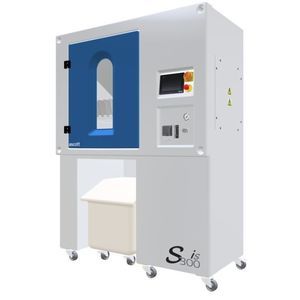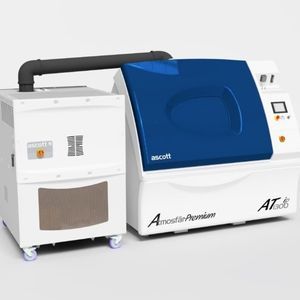
Climatic test cell Kesternichtemperaturehumidityautomatic

Add to favorites
Compare this product
Characteristics
- Type
- climatic
- Controlled parameter
- temperature, humidity
- Other characteristics
- automatic
- Capacity
Min.: 0.2 l
(0.1 gal)Max.: 2 l
(0.5 gal)- Temperature range
50 °C
(122 °F)
Description
Kesternich testing simulates acid rain or industrial chemical exposure to evaluate the relative corrosion resistance of the coating, substrate, or part itself. Parts or panels are placed inside a specially designed chamber and are exposed to SO2 and condensation humidity before being evaluated for resistance to corrosion.
A specific volume of SO2 gas, usually 0.2L, 1L or 2L is introduced into the test chamber, the chamber temperature is increased to a predetermined level and the relative humidity is maintained at condensation levels. After a set period, the chamber is vented and the temperature is allowed to decrease to ambient conditions.
Ascott’s Kesternich chamber does not require any human intervention whilst running the tests, its fully automatic design is controlled by a state of the art control system. The Kesternich chamber is designed to meet various gas dosing test standards as listed below and can also be used as a condensation humidity chamber.
SO2/Humidity mode
Condensation Humidity mode
Air Flushing mode
Fully automated electronic gas dosing system
Hermetically sealed chamber with Automatic air purge function with canopy interlock
User friendly control system with Pneumatic canopy control
Automatic drain and exhaust system
Digital precision temperature control
Temperature graphical display
Interior viewing window with illumination
Ethernet communication port
VIDEO
Catalogs
No catalogs are available for this product.
See all of Ascott‘s catalogs*Prices are pre-tax. They exclude delivery charges and customs duties and do not include additional charges for installation or activation options. Prices are indicative only and may vary by country, with changes to the cost of raw materials and exchange rates.






